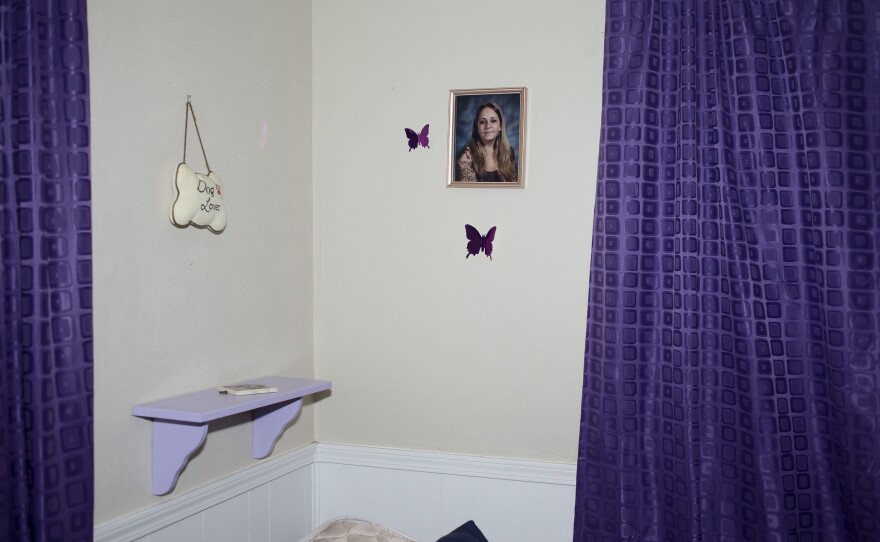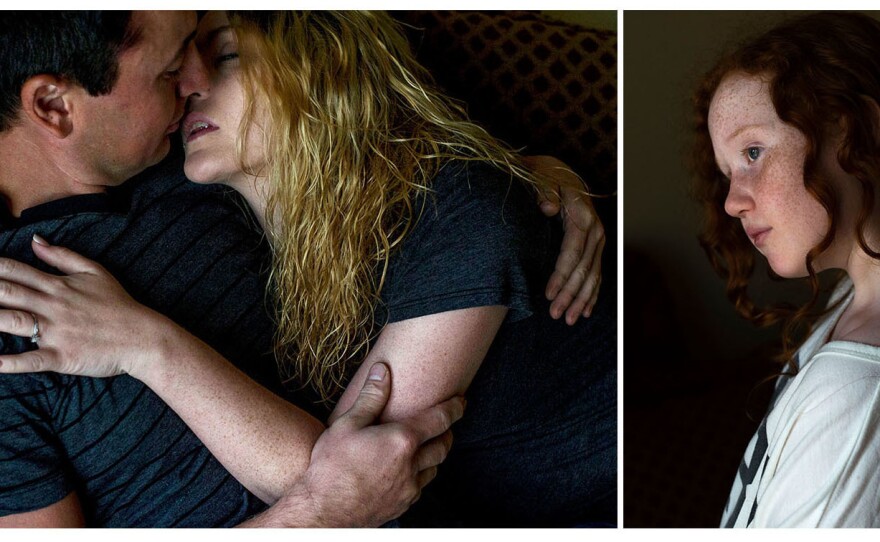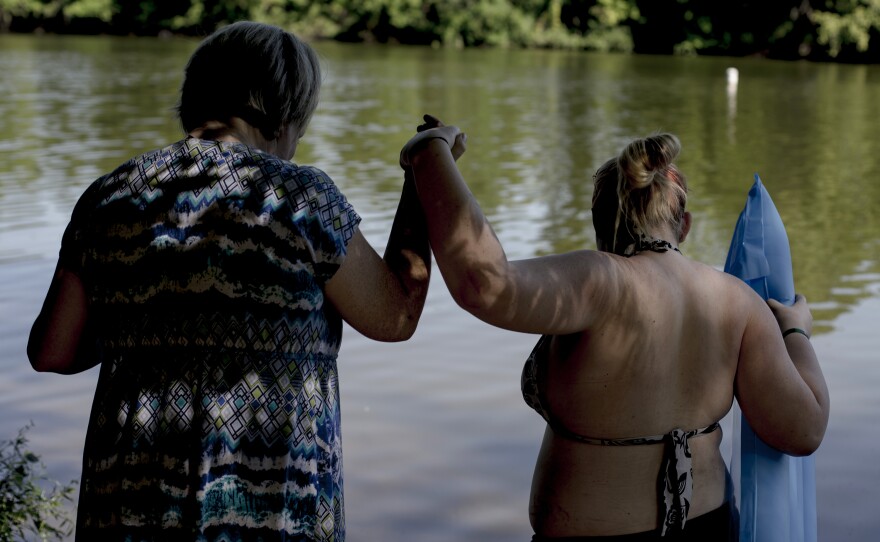Nearly 500 Oklahoma prison inmates walked free on Monday, Nov. 4, in an effort by the state to lose the title of the nation's incarceration capital. Oklahoma's incarceration rate in 2018 led the nation, with 1,079 per 100,000 people behind bars, according to a report by the Prison Policy Initiative.
During the summer of 2018, Morgan Hornsby, a visual journalist from eastern Kentucky and a photo intern at the Tulsa World newspaper, found herself in the middle of a national story. Hornsby's first assignment was to document a graduation inside Dick Conner Correctional Center, a prison for men in northern Oklahoma.
"What we see about incarceration from movies, television, and other media perpetuates a narrative of distance — those who are incarcerated are a group separate from families, communities and society as a whole," she said.
Hornsby realized there was more to this story. It wasn't just about incarceration; it was about the families and individuals being affected by it.

"As I spoke with incarcerated men and their families, I didn't see distance, but families who loved each other despite it," Hornsby said.
Oklahoma was beginning to catch the attention of multiple news organizations around the country for its high incarceration rate. After multiple prisons and jails refused to allow her inside to interview and photograph prisoners, Hornsby started to realize the limitations ahead.
"Access into these facilities proved a really difficult process, usually resulting in denial. I was very discouraged at first, not sure of how I could photograph incarceration without photographing the places where people were incarcerated," Hornsby said.
However, she was able to partner with Poetic Justice, an Oklahoma non-profit that offers writing workshops to help incarcerated women find a voice, hope, and power to change.
"In the end, the lack of access pushed me to find less obvious ways to photograph incarceration and its impact on families. With Poetic Justice, we found another way to work together," Hornsby said.

She decided to create a visual representation of the families' stories through poetry written by women from prison. Hornsby has a love for poetry, and after reading some of their work, decided it would be a perfect fit.
The project lasted around 10 weeks, starting in June 2018 and continuing through August of the same year. During that time, Hornsby made photographs that worked with the people and imagery in the poems.
Some of the poems relate writers' loneliness, the feeling of being trapped, the meaning of home, and new beginnings. With these themes, Hornsby was able to visualize that feeling and create an image to represent the poem.
Hornsby recalled photographing a family that had been separated for over 20 years due to incarceration.
"Their bond was special — deeply ingrained and apparent despite not knowing each other for much of their lives," Hornsby said.
Carolyn Williams, the great grandmother of Adalynn, pictured above, had been convicted for drug use and sent to a federal prison in Virginia. Now, 21 years later, the four generations were able to reconnect.
"The entire experience of making their first family photos was an incredible honor, but this moment between Carolyn and Adalynn taught me the strength in familial bond despite the greatest distance," Hornsby said.
As the project came to a close, Hornsby finished knowing that her reporting and attentiveness to the families made a difference to her and to them. She hopes the project allows the audience a chance to relate to a national issue in an innovative and meaningful way.
"Since the effect of incarceration on families is so great, I realized coverage of the issue should reflect that. Focusing on family, and poetry as well, helped me to find truth and nuance as well as to give viewers another framework in which to view incarceration, hopefully one that challenges other perceptions of a stigmatized topic," Hornsby said.

Mhari Shaw is the photo editing intern with the visuals desk at NPR.
Copyright 2023 NPR. To see more, visit https://www.npr.org. 9(MDAzMjM2NDYzMDEyMzc1Njk5NjAxNzY3OQ001))






